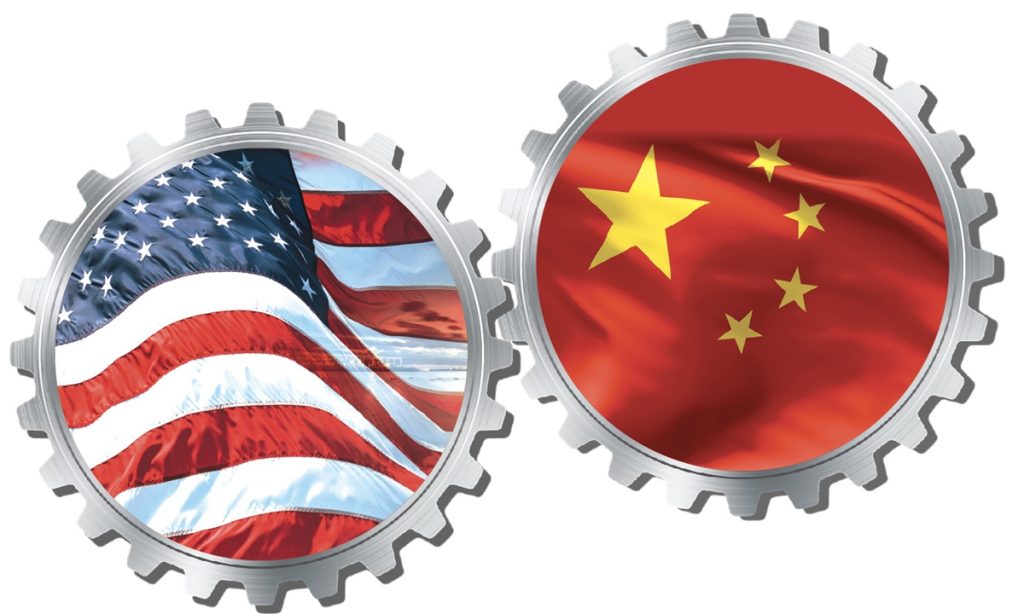Chinese officials meet former US Treasury secretary; 'engagement may serve as effective way to break impasse in China-US ties'

Chinese senior officials met with former US Treasury secretary Henry Paulson on Monday and Tuesday in Beijing, exchanging views on bilateral economic and trade cooperation and global issues, such as climate change and the global economic situation.
Analysts said that this form of meeting and engagement with former US officials, together with the two new working groups for economic and financial matters set up on Friday between China and the US, may become an effective way to break the current impasse in China-US relations. The meeting could also set the stage for subsequent formal communications.
On Tuesday, Chinese Vice President Han Zheng met Henry Paulson, former US Treasury secretary, saying that the China-US relationship is the most important bilateral relationship in the world today, according to the Xinhua News Agency.
"As the largest developing country and the largest developed country, the two countries should strengthen mutually beneficial cooperation in various fields, jointly promote the world economic recovery and address global challenges," said Han.
Han stressed that China has always adhered to the rules of mutual respect, peaceful coexistence and win-win cooperation when viewing and handling bilateral relations. It is hoped that the US side will meet China halfway to bring bilateral relations back to the sound and stable track.
The Chinese vice president also noted that China welcomes more US companies to invest and do business in China to share development opportunities.
Paulson said that he is confident about the prospect of China's economic development.
The US-China relationship has an important impact on the world. The two countries should maintain communication and dialogue, strengthen people-to-people exchanges and economic and trade cooperation, and jointly cope with global challenges such as climate change, said Paulson, noting that he is willing to continue to play a positive role in promoting the steady development of US-China relations.
Also on Tuesday, Wang Yi, director of the Office of the Foreign Affairs Commission of the Communist Party of China (CPC) Central Committee, met with Paulson.
Wang appreciated Paulson's long-term commitment to promoting the development of China-US relations. He hoped that Paulson would continue to play a constructive role in turning around China-US relations, according to China's Foreign Ministry.
It is hoped that the US will take concrete actions to expand the positive list and narrow the negative list, and work with China to explore ways for China and the US to live in peace as two major countries, Wang noted.
Paulson told Wang that he welcomes the recent resumption and maintenance of dialogue between the US and China. The two sides should indeed push for the stabilization and improvement of US-China relations and explore ways to expand cooperation in areas of common interests such as economy, finance, agriculture and coping with climate change.
On Monday, Pan Gongsheng, governor of the People's Bank of China, the central bank, met with Paulson. The two sides exchanged views on the global economic situation, China-US economic and trade relations, green finance and other topics.
Resistance to China-US negotiations has always been on the US side due to internal divisions, and some forces in the current US administration or Congress is preventing bilateral relations from returning to normal, Hu Qimu, a deputy secretary-general of the digital-real economies integration Forum 50, told the Global Times on Tuesday.
"Meeting with former US officials, who have direct communication with the current US administration, can lead to more effective communication, especially when visits to China by current senior US officials made little progress," said Hu.
Hu said that the China-US working groups set up on Friday will solve some problems, which will help smooth trade between China and the US.
"In fact, both sides have the will to change the current economic and trade relations, and Chinese and US companies are also looking for a change. But forces seeking positive change have to brave and overcome the obstacles in the US - from the government or Congress - to reach consensus, at a time when the Cold War mentality and populism are on the rise," said Hu.